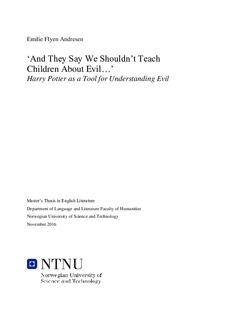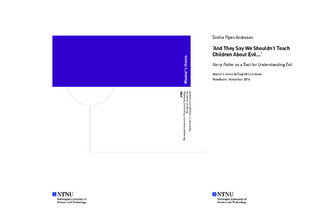| dc.description.abstract | This thesis examines the portrayal of evil in the seven Harry Potter novels, written by J. K. Rowling. With its roots in the criticism raised against the books, the thesis attempts to answer if the concerns about children and young adults reading these books are justified. Firstly, I study the different conceptions of right, wrong and evil as understood by philosophers and scholars such as Immanuel Kant and Hannah Arendt, trying to create a basis on which the characters’ morality can be determined. Then I give an account of some of the criticism the series has received, and the aspects of the books which are often problematized, followed by an attempt to show why the evil depicted in the books seems unproblematic. My argument is that evil in books may function as a less frightening projection of the evil young readers might encounter in the real world, and that reading about it therefore is a valuable experience in safer surroundings, which might help these young readers to develop their advanced moral reasoning. | nb_NO |

